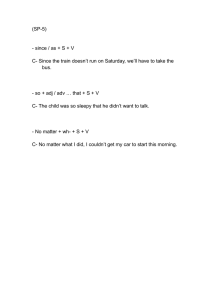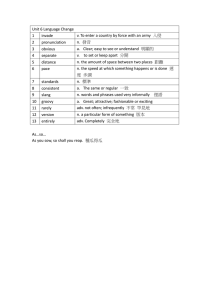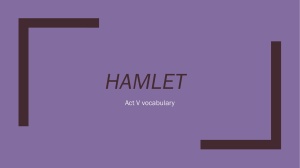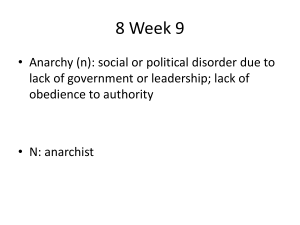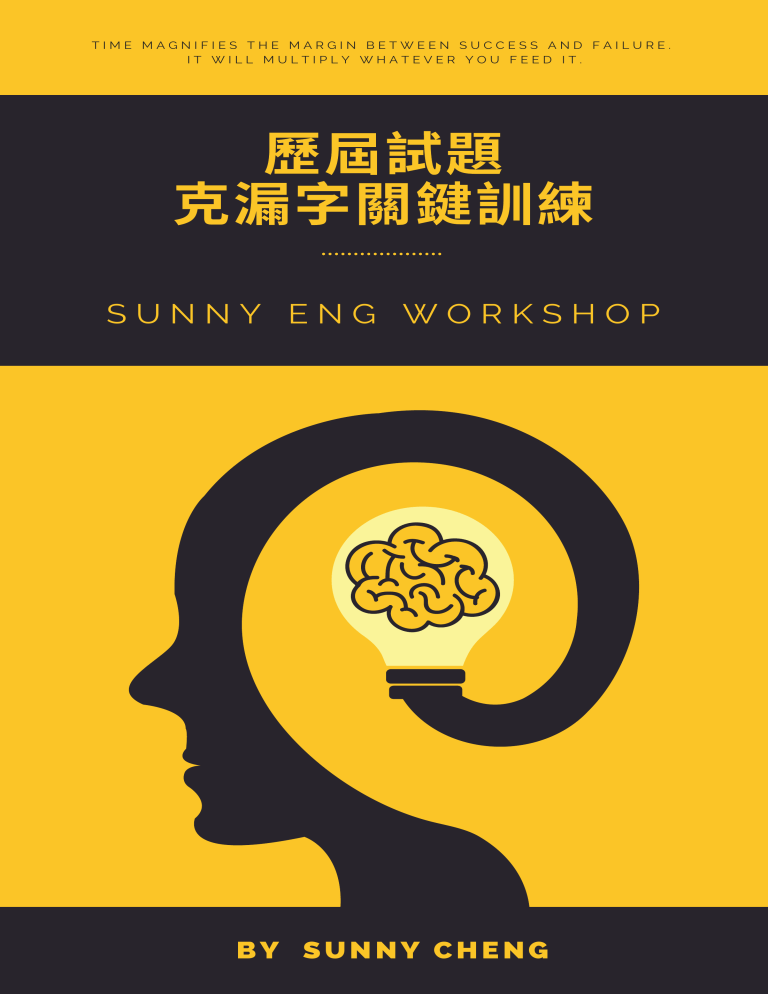
TIME MAGNIFIES THE MARGIN BETWEEN SUCCESS AND FAILURE. IT WILL MULTIPLY WHATEVER YOU FEED IT. 歷屆試題 克漏字關鍵訓練 SUNNY ENG WORKSHOP BY SUNNY CHENG Sunny Eng Square© | 歷屆學測英文克漏字解題攻略#2 民國 87 年學測克漏字考題#1 There was once a man in Puerto Rico who had a wonderful parrot. The parrot was _(1)_; there was no other bird like him in the whole world. He could learn to say any word—_(2)_ one. He could not say the name of his native town, Catano. The man _(3)_ everything he could to teach the parrot to say “Catano,” but he never _(4)_. At first he was very gentle with the bird, but gradually he lost his _(5)_. “You stupid bird! _(6)_ can’t you learn to say that one word? Say ‘Catano’ or I’ll kill you!” But the parrot would not say it. Many times the man screamed, “Say ‘Catano’ or I’ll kill you!” But the bird would not _(7)_ the name.Finally the man gave up. He picked up the parrot and threw the bird into the chicken house. In the chicken house, there were four old chickens, waiting to be killed _(8)_ Sunday’s dinner. “You are even more stupid than the chickens,” the man said as he was leaving. The next morning, the man went out to the chicken house. When he opened the door, he was _(9)_ by what he saw. He could not believe his eyes and ears! On the floor _(10)_ three dead chickens. The parrot was screaming at the fourth, “Say ‘Catano’ or I’ll kill you!” 1. (A) lonely (B) unique (C) sorrowful (D) personal 2. (A) without (B) beyond (C) except (D) despite 3. (A) did (B) put (C) had (D) made 4. (A) failed (B) attempted (C) changed (D) succeeded 5. (A) pet (B) thing (C) temper (D) possession 6. (A) How (B) Why (C) What (D) When 7. (A) tell (B) talk (C) repeat (D) converse 8. (A) in (B) on (C) at (D) for 9. (A) worried (B) shocked (C) delighted (D) blinded 10.(A) lay (B) laid (C) lied (D) lying 1 Sunny ENG Square© | 歷屆學測英文克漏字解題攻略#2 克漏字講解#1 (1) There was once(adv.曾經) a man in Puerto Rico who had a wonderful parrot(n.鸚 鵡). The parrot was _(1)_; there was no other bird like him in the whole world. He could learn to say any word—_(2)_ one. He could not say the name of his native(a.土生 土長的) town, Catano. 1. (A) lonely (B) unique (C) sorrowful (D) personal adj. 寂寞的 ≒ l__________ 2. (A) without prep. -而沒有 adj. 獨一無二的 [uni←one] (B) beyond prep. 超過 adj. 悲傷的 [sorro←sorry] (C) except adj. 私/個人的 (D) despite prep. 除…外,都 prep. 儘管雖然 [ex-=out | cep←have] =r________ of = in ______ of (2) The man _(3)_ everything he could to teach the parrot to say “Catano,” but he never _(4)_. At first he was very gentle(adj.溫柔的) with the bird, but gradually(adv.慢慢地) he lost his _(5)_. … 3. (A) did (B) put (C) had (D) made [課堂筆記]: - _____ everything one can to Vr:盡力去… e.g. I have done everything I could to help him. 4. (A) failed (B) attempted (C) changed (D) succeeded 5. (A) pet (B) thing (C) temper (D) possession vi. 失敗 [fail←fall] n. 寵物 n./v. 嘗試 [temp←time] v. 改變 cn. 改變 un.零錢 n. 脾氣 *. lose one’s temper :發脾氣 vi. 成功(+in) vt. 繼承 [ceed←catch] n. 所有物(多用______) (3) …“You stupid(adj.愚蠢的) bird! _(6)_ can’t you learn to say that one word? Say ‘Catano’ or I’ll kill you!” But the parrot would not say it. Many times the man screamed(v.吼叫), “Say ‘Catano’ or I’ll kill you!” But the bird would not _(7)_ the name. Finally the man gave up(放棄). He picked up the parrot and threw the bird into the chicken house. In the chicken house, there were four old chickens, waiting to be killed _(8)_ Sunday’s dinner. “You are even more stupid than the chickens,” the man said as he was leaving. 6. (A) How (B) Why (C) What (D) When 7. (A) tell (B) talk (C) repeat ← (D) converse vt. 告訴 vi. 說話 vt. 重複/覆述 2 vi. 對話(+with) [verse←word] Sunny Eng Square© | 歷屆學測英文克漏字解題攻略#2 8. (A) in (B) on (C) at [課堂筆記]: - for 可以表示________。 e.g. For a better world, we should help each other. (D) for (4) The next morning, the man went out to the chicken house. When he opened the door, he was _(9)_ by what he saw. He could not believe his eyes and ears! On the floor _(10)_ three dead chickens. The parrot was screaming at the fourth, “Say ‘Catano’ or I’ll kill you!” 9. (A) worried (B) shocked (C) delighted (D) blinded vt. 擔心 vt. 震驚 10.(A) lay (B) laid [課堂筆記]: - lie vi. 說謊 (lied, lied, lying) vi. 躺 (lay, lain, lying) - lay vt. 下蛋;放置 (laid, laid, laying) vt. 使開心 [light a.輕的] (C) lied 3 vt. 使看不見 (D) lying Sunny ENG Square© | 歷屆學測英文克漏字解題攻略#2 民國 87 年學測克漏字考題#2 Perhaps most of us are familiar with the saying “Laugh and the world _(1)_ with you, weep and you weep alone.” _(2)_ did you know that according to recent research, people are losing the art of laughter and it could have a _(3)_ effect on our health? In 1930 we laughed on average for 19 minutes each day, but by 1980 it _(4)_ to six minutes. Children, _(5)_, can see the funny side of things more often and may laugh up to 400 times a day. By exhaling air from the lungs in short _(6)_ of laughter, breathing is quickened and heartbeats increased, which achieves _(7)_ good as ten minutes on an exercise bike. Laughter, too, has a beneficial effect on our immune system, _(8)_ the production of white blood cells and increasing our resistance to infection. _(9)_ makes a difference to our appearance, too, when we relax our facial muscles! Laughter _(10)_ is the best medicine, so why not give yourself a treat? Have a good laugh today—and feel better for it. 1. (A) fights (B) sings (C) laughs (D) cries 2. (A) How (B) But (C) So (D) When 3. (A) good (B) serious (C) few (D) heavy 4. (A) has been decreasing (B) was decreasing (C) should have decreased (D) had decreased 5. (A) as a result (B) in addition (C) by chance (D) on the other hand 6. (A) bursts (B) breaks (C) circles (D) pieces 7. (A) as many (B) as much (C) so many (D) so much 8. (A) encourages (B) encouraged (C) encouraging (D) to encourage 9. (A) It (B) There (C) What (D) Where 10.(A) hardly (B) kindly (C) rarely (D) really 4 Sunny Eng Square© | 歷屆學測英文克漏字解題攻略#2 克漏字講解#2 (1) Perhaps(adv.或許) most of us are familiar with(對…熟悉) the saying “Laugh and the world _(1)_ with you, weep(vi.哭泣) and you weep alone(adv.獨自).” _(2)_ did you know that according to(根據) recent research, people are losing the art(n.技術/能力) of laughter and it could have a _(3)_ effect(n.影響) on our health? 1. (A) fights (B) sings (C) laughs (D) cries 2. (A) How (B) But (C) So (D) When 3. (A) good (B) serious (C) few (D) heavy [課堂筆記]: - have + a(n) + adj. + effect/impact/influence _____:影響 e.g. Smoking has a crippling impact on your health. (抽煙對你的健康有相當不好的影響。) (2) In 1930 we laughed on average(平均來說) for 19 minutes each day, but by 1980 it _(4)_ to six minutes. Children, _(5)_, can see the funny side of things more often and may laugh up to(高達) 400 times a day. 4. (A) has been decreasing (B) was decreasing (C) should have decreased (D) had decreased [課堂筆記]: - by + 過去時間:要使用_______________。 e.g. By 1990, he had been a very successful manager. e.g. By the time you came back, I had already finished the report. 5. (A) as a result phr. [前___後___] = therefore = t__________ = h__________ = c__________ (B) in addition (C) by chance phr. [立場一致_____說明] phr. 碰巧 = a__________ = by a__________ = b__________ = f__________ =m__________ (D) on the other hand phr. [前後______] =however =n__________ =y___ (3) By exhaling(vt.呼出) air from the lungs(n.肺臟) in short _(6)_ of laughter, breathing is quickened(vt.加快) and heartbeats increased, which achieves(vt.達到) _(7)_ good as ten minutes on an exercise bike(運動腳踏車). … 6. (A) bursts (B) breaks (C) circles (D) pieces n. 爆炸/爆發 7. (A) as many n. 停止;休息 (B) as much n. 圓圈;循環 (C) so many [課堂筆記]: - as(adv.) + adj./adv. + as(連)…:如同…一樣地… e.g. He can work as efficiently(adv.有效率地) as you do. e.g. He is not so/as good as you are. 5 n. 片/張/件 (D) so much Sunny ENG Square© | 歷屆學測英文克漏字解題攻略#2 (4) …Laughter, too, has a beneficial effect on(具有有益的影響) our immune system(免疫系 統), _(8)_ the production(n.生產) of white blood cells(白血球細胞) and increasing our resistance(n.抵抗) to infection(n.感染). .... 8. (A) encourages (B) encouraged (C) encouraging (D) to encourage [課堂筆記]: - 兩句話沒有連接詞,就可以使用「分詞構句」: 1) 去掉同___; 2) V 改為_______; 3) 若 Ving 為 being,則可___。 [原句]:Laugher has a beneficial effect on our immune system, laugher encourages the production of white blood cells. → Laughter has a beneficial effect on our immune system, __________ the production of white blood cells. (5) …_(9)_ makes a difference to(對…有影響) our appearance(n.外貌), too, when we relax our facial muscles(放鬆我們的臉部肌肉)! Laughter _(10)_ is the best medicine, so why not give yourself a treat(n.點心招待)? Have a good laugh today—and feel better for it. 9. (A) It (B) There (C) What (D) Where [課堂筆記]: - It… + __________ - There/Here…+ _____ 10.(A) hardly adv. 幾乎不 (B) kindly adv. 仁慈地 (C) rarely adv. 鮮少 =s__________ =b__________ 6 (D) really adv. 真正地 Sunny Eng Square© | 歷屆學測英文克漏字解題攻略#2 民國 88 年學測會話考題 Guest: Receptionist: Guest: Receptionist: 1. 2. 3. 4. 5. (A) awoke (A) happens (A) most (A) They (A) could My name is Hagen. I’m in room 229. This morning I _(1)_ at 6 o’clock by a telephone call that wasn’t for me. Now this is the second time this _(2)_. It’s just not good enough! The call was for a Mr. Haugen! Don’t you people listen! I’m _(3)_ terribly sorry, Mr. Hagen. I will inform the early morning supervisor. She will ensure it doesn’t happen again. Well, I hope not! Also, I received this FAX this morning. I’ve only got the first two pages. _(4)_ should be four more. Didn’t anyone check? This is a very important document! I _(5)_ apologize, Mr. Hagen. I’ll check the FAX office right away. Could I have those two sheets, please? (B) woke up (C) was woken up (D) wakened (B) is happening (C) has happened (D) had happened (B) much (C) more (D) many (B) These (C) Those (D) There (B) do (C) ought (D) may 7 Sunny ENG Square© | 歷屆學測英文克漏字解題攻略#2 會話講解 (1) Guest: 1. (A) awoke My name is Hagen. I’m in room 229. This morning I _(1)_ at 6 o’clock by a telephone call that wasn’t for me. Now this is the second time this _(2)_. It’s just not good enough! The call was for a Mr. Haugen! Don’t you people listen! (B) woke up (C) was woken up (D) wakened [課堂筆記]:看到___,有極高機率是被動。 e.g. Tom was punished by his father. 2. (A) happens (B) is happening (C) has happened [課堂筆記]:表示「過去至今的經驗_______」,要使用 have Vpp。 e.g. I have seen the movie twice. e.g. He has never been so mad before. (2) Receptionist: Guest: Receptionist: 3. (A) most (D) had happened I’m _(3)_ terribly sorry, Mr. Hagen. I will inform(vt.通知) the early morning supervisor(n.管理者). She will ensure it doesn’t happen again. Well, I hope not! Also, I received(vt.收到) this FAX(n.傳真) this morning. I’ve only got the first two pages. _(4)_ should be four more(再四頁). Didn’t anyone check? This is a very important document(n.文件)! I _(5)_ apologize(vi.抱歉), Mr. Hagen. I’ll check the FAX office right away. Could I have those two sheets(n.紙張), please? (B) much (C) more (D) many [課堂筆記]: - most 當作 adv.,意義就等於_______。 e.g. He will most/very likely be late again. (他很有可能又要遲到了。) e.g. Tina treats us most generously. (Tina 對我們最大方。) (3) Guest: Receptionist: 4. (A) They Well, I hope not! Also, I received(vt.收到) this FAX(n.傳真) this morning. I’ve only got the first two pages. _(4)_ should be four more(再四頁). Didn’t anyone check? This is a very important document(n.文件)! I _(5)_ apologize(vi.抱歉), Mr. Hagen. I’ll check the FAX office right away. Could I have those two sheets(n.紙張), please? (B) These (C) Those (D) There [課堂筆記]: - There/Here + vi/beV…_____ e.g. There will be a major football meet next month. 8 Sunny Eng Square© | 歷屆學測英文克漏字解題攻略#2 5. (A) could (B) do [課堂筆記]:do/does/did + Vr 表「加強語氣」。 e.g. I do love you. (我真的愛你。) (C) ought 9 (D) may Sunny ENG Square© | 歷屆學測英文克漏字解題攻略#2 民國 88 年學測克漏字考題#1 Most people like to talk, but few people like to listen. _(1)_ listening well is a rare talent that everyone should treasure. Because they hear more, good listeners _(2)_ to know more and to be more sensitive to what is going on around them than other people. In addition, good listeners are inclined to accept or tolerate _(3)_ to judge and criticize. Therefore, they have _(4)_ enemies than other people. _(5)_, they are probably the most loved of people. However, there are _(6)_ to that generality. For example, John Steinbeck is _(7)_ to have been an excellent listener, yet he was hated by some of the people he wrote about. No doubt his ability to listen contributed _(8)_ his capacity to write. _(9)_, the results of his listening did not make him popular. Thus, _(10)_ on what a good listener does, he may become either popular or disliked in his lifetime. 1. (A) Yet (B) And (C) Or (D) So 2. (A) mean (B) like (C) tend (D) act 3. (A) instead of (B) rather than (C) in order (D) in addition 4. (A) little (B) least (C) lesser (D) fewer 5. (A) In contrast (B) In particular (C) In fact (D) In other words 6. (A) situations (B) exceptions (C) perceptions (D) observations 7. (A) called (B) named (C) said (D) told 8. (A) on (B) to (C) for (D) in 9. (A) Nevertheless (B) Conversely (C) Consequently (D) Moreover 10.(A) depend (B) depends (C) depended (D) depending 10 Sunny Eng Square© | 歷屆學測英文克漏字解題攻略#2 克漏字講解#1 (1) Most people like to talk, but few people like to listen. _(1)_ listening well is a rare talent(稀有的才能) that everyone should treasure(vt.珍惜). 1. (A) Yet (B) And (C) Or (D) So adv.然而[前後對比] = however = n__________ = on the ________ = in/by ________ adv.因此[前因後果] = therefore = t_____ / h______ = as a r_____ = c__________ (2) …Because they hear more, good listeners _(2)_ to know more and to be more sensitive to(對…感到敏感) what is going on(發生) around them than other people. In addition(此 外), good listeners are inclined to(會) accept or tolerate(接受或容忍) _(3)_ to judge and criticize(評斷跟批評). 2. (A) mean (B) like (C) tend (D) act *.mean to Vr:打算 *.like to Vr:想要 = i_______ to Vr 3. (A) instead of (B) rather than [phr] 而非 [phr] 而非 (+ N/______) (+與前句_____的詞性) e.g. I want to leave instead of staying. → I want to leave rather than to stay. → I want to leave ______ to stay. *.tend to Vr:會 = beV + i________ to Vr = beV + p_____ to Vr = beV + l______ to Vr = beV + a___ to Vr (C) in order [phr] 為了(+to Vr) (D) in addition [phr] 此外 = besides = moreover / furthermore = additionally (3) …Therefore, they have _(4)_ enemies(n.敵人) than other people. _(5)_, they are probably the most loved of people. However, there are _(6)_ to that generality(n.泛泛之 言). 4. (A) little (B) least (C) lesser (D) fewer [課堂筆記]: - few + _____ little + _____ 5. (A) In contrast (B) In particular (C) In fact (D) In other words 6. (A) situations (B) exceptions (C) perceptions (D) observations [phr] 然而 [phr] 特別是 n. 情況 n. 例外 [sit vi.坐下→固定] [cep←have:有←拿] [phr] 其實 n. 感知;察覺 [per←first:往前] 11 [phr] 換言之 [___解釋] = _________ (to say) = n______ n. 觀察;遵守 [ob←off | ser←sort] Sunny ENG Square© | 歷屆學測英文克漏字解題攻略#2 (4) …For example, John Steinbeck is _(7)_ to have been an excellent(adj.絕佳的) listener, yet he was hated by some of the people he wrote about. No doubt(毫無疑問地) his ability to listen contributed _(8)_ his capacity(n.才能) to write. 7. (A) called (B) named (C) said (D) told [課堂筆記]: - beV + said to Vr:據說 e.g. Ethan is said to treat his students well. → It is said _____ Ethan treats his students well. 8. (A) on (B) to [課堂筆記]: - contribute ___ N:導致(=cause) = give rise ___ = lead ___ = bring _____ = result _____ (C) for (D) in (5) …_(9)_, the results(n.結果) of his listening did not make him popular. Thus, _(10)_ on what a good listener does, he may become either popular or disliked(vt.討厭) in his lifetime. 9. (A) Nevertheless (B) Conversely (C) Consequently (D) Moreover adv.然而[前後對比] adv. 相反地 10.(A) depend (B) depends adv.因此 [前因後果] (C) depended adv.此外 [立場一致_____說明] (D) depending [課堂筆記]: - 並非所有的「分詞構句」都遵照 1)去掉同 S、2)V 改為 Vinf、3) being 可省 的三步驟。 [獨立分詞構句]: e.g. weather/time permitted 天氣/時間許可的話 God granted 老天准許的話 all told 總計 depending on 端看… 12 Sunny Eng Square© | 歷屆學測英文克漏字解題攻略#2 民國 88 年學測克漏字考題#2 It was my first day in this beautiful tropical city. _(1)_ I was walking to the beach, a stranger came up to me and tried to shake my hand. "Don’t you remember me, my friend?" he said. But I couldn’t _(2)_ his face at all. I didn’t know a soul in the city. I had just arrived by plane and still had jetlag. "I _(3)_ you at the airport. I work there at the customs. How are you enjoying our beautiful city?" I couldn’t remember him but I was too _(4)_ to tell him. He was so friendly. _(5)_ he offered to take me to his uncle’s seafood restaurant, just by the beach. I thanked him _(6)_ but he insisted that we should go there for dinner. "You’ll love the seafood there," he _(7)_ me. "And it will be a dinner to remember." So we went to the restaurant and sat by a window _(8)_ the bay. The dinner was great indeed, but the coffee they served was quite different. In fact, it tasted very strange... Anyway, it was not _(9)_ 10 o’clock the next morning that I finally woke up. But I had no idea where I was. All my money was _(10)_ and my "friend" had even taken my watch and my shoes! 1. (A) As (B) But (C) Though (D) For 2. (A) analyze (B) emphasize (C) recognize (D) memorize 3. (A) have seen (B) saw (C) had seen (D) was seeing 4. (A) exhausted (B) interested (C) frightened (D) embarrassed 5. (A) Even (B) Then (C) When (D) While 6. (A) eagerly (B) happily (C) politely (D) willingly 7. (A) declared (B) proposed (C) responded (D) assured 8. (A) overlook (B) overlooking (C) overlooks (D) overlooked 9. (A) before (B) after (C) until (D) towards 10.(A) gone (B) none (C) no (D) nothing 13 Sunny ENG Square© | 歷屆學測英文克漏字解題攻略#2 克漏字講解#2 (1) It was my first day in this beautiful tropical(a.熱帶的) city. _(1)_ I was walking to the beach, a stranger came up to me and tried to shake my hand(握手). "Don’t you remember me, my friend?" he said. But I couldn’t _(2)_ his face at all(一點…都不). I didn’t know a soul(n.靈魂/人) in the city. I had just arrived by plane and still had jetlag(n.時差). "I _(3)_ you at the airport. I work there at the customs(n.海關). How are you enjoying our beautiful city?" 1. (A) As (B) But (C) Though (D) For [課堂筆記]:as = 1) when/while 2) because 3)如同 2. (A) analyze (B) emphasize (C) recognize (D) memorize 3. (A) have seen (B) saw (C) had seen (D) was seeing vt. 分析 vt. 強調(=stress) [anal n.*門→徹底] [pha←fa:說] vt. 認出 [cog n.齒輪] vt. 背下 [mem←mind] (2) I couldn’t remember him but I was too _(4)_ to tell him. He was so friendly. _(5)_ he offered to(主動去…) take me to his uncle’s seafood restaurant, just by the beach. I thanked him _(6)_ but he insisted(vt.堅持) that we should go there for dinner. 4. (A) exhausted (B) interested (C) frightened (D) embarrassed vt. 使累壞;耗盡 vt. 使感興趣 [haust←gas] vt. 使害怕 [fright←fight] vt. 使尷尬/害羞 [bar n. 木條] 5. (A) Even (B) Then (C) When (D) While 6. (A) eagerly (B) happily (C) politely (D) willingly [課堂筆記]: - Adv.連 + 句 1, 句 2. = 句 2 adv.連 + 句 1. e.g. When he comes, please tell him the news. = Please tell him the news when he comes. (請在他來的時候跟他講這消息。) adv. 熱切地 [eager←eagle n.老鷹] adv. 有禮貌地 [pol←pull] *. 拉→克制→管理 adv. 願意地 (3) "You’ll love the seafood there," he _(7)_ me. "And it will be a dinner to remember(一個值得回憶的晚餐)." 7. (A) declared (B) proposed (C) responded (D) assured vt. 宣布 [clare←clear] vt. 提議 [pro←first | pose←put] vi. 回應 [spond←sponge] *. 有求必應 14 vt. 向…保證 [sure a.確定確信] Sunny Eng Square© | 歷屆學測英文克漏字解題攻略#2 (4) So we went to the restaurant and sat by a window _(8)_ the bay(n.海灣). The dinner was great indeed, but the coffee they served(vt.提供) was quite different. In fact, it tasted very strange... 8. (A) overlook (B) overlooking (C) overlooks (D) overlooked [課堂筆記]:關代做 S 的化簡 (1) 去掉關代; (2) V 改為______ (3) 若 Ving 等於 being,則要______。 [原句]: We went to the restaurant and sat by a window, which overlooked the bay. → We went to the restaurant and sat by a window, ________ the bay. (5) Anyway, it was not _(9)_ 10 o’clock the next morning that I finally woke up. But I had no idea where I was. All my money was _(10)_ and my "friend" had even taken my watch and my shoes! 9. (A) before (B) after (C) until (D) towards [課堂筆記]: - ___定句 + until + 句子/時間 N. 「直到…___」 → It is/was not until + 句子/時間 N + _____句. e.g. He didn’t sleep until midnight. → It was not until midnight that he slept. 10.(A) gone (B) none [課堂筆記]:beV + gone 消失 (C) no 15 (D) nothing
